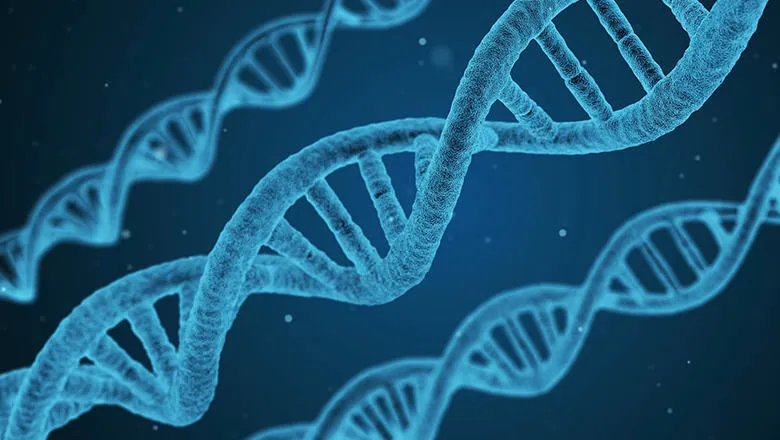16 January 2018
King's part of €15million project to improve diagnosis of rare diseases
Collaborating with families affected by rare genetic conditions, to achieve large-scale sharing of genome sequencing results across Europe.

Researchers from King’s are working on a unique consortium project on rare diseases, which has been awarded a major European grant of €15 million. The project aims to work with families affected by rare genetic conditions, to co-design the large-scale sharing of genome sequencing results across Europe.
The large consortium, led by the University of Tübingen, the Radboud university medical centre Nijmegen and the University of Leicester has been awarded funding by the European Union (EU) for the SOLVE-RD research program. The consortium will use the funding to improve the diagnosis of rare diseases. The researchers will work directly with four European reference networks (or ERNs): European networks of care providers set up to share and enhance the knowledge and resources used for treating rare diseases.
Patients with a rare disease generally go through a long and arduous process, sometimes lasting 10 or 15 years (also known as the rare disease odyssey), before finding a health professional who knows what is wrong with them. Scientific advances can also take a long time, as it is difficult to find sufficient numbers of people with the same rare disease to enable successful research.
No diagnosis
Collectively rare diseases are common. While for a given rare disease, the number of people will be extremely low, the very large number of such rare diseases means their number in Europe runs into hundreds of thousands. In recent years, it has become clear that the ‘eye’ of a doctor alone often will not suffice to diagnose a rare disease. Better genetic tests are needed to effectively diagnose rare diseases.
Commitment
This is where SOLVE-RD, a large-scale research program operating under the European Commission’s Horizon 2020, comes in. The academic partners taking part in SOLVE-RD have designed an infrastructure enabling the coordination and analysis of all data generated across Europe. Combining the existing exome and genome patient data of all collaborators of SOLVE-RD greatly increases the chances of finding a second or a third patient with the same rare disease. The commitment for sharing data on rare diseases on this scale is unique.
Data as never seen before
But SOLVE-RD goes a few steps further by applying the latest available ‘multi-omics’ methods. If the DNA data illuminate a particular disease, researchers turn to other large-scale tests that reflect the gene’s function such as RNA, the proteins (proteomics), metabolic products (metabolomics) and epigenomics. Combining these ‘…omics’ techniques provides the extra information that may ensure that a rare disease is diagnosed. The enormous amount of data resulting from this multi-omics approach must be converted into useful, comprehensible information by bioinformatic scientists using smart algorithms.
Virtual networks
SOLVE-RD is a unique project, because the research for better diagnostics of rare diseases is directly linked to better care at the European level in 24 Reference Networks (ERNs). These ERNs were set up to improve and harmonise diagnosis and treatment for people suffering from rare diseases. Using shared knowledge and guidelines, a patient in Romania, for example, will receive the same diagnostics and treatment as a patient in Sweden or Spain. The virtual networks collectively pool all existing knowledge and remove unnecessary boundaries.
Diagnostics of the future
SOLVE-RD comprises four ERNs for rare neurological diseases (RND), neuromuscular diseases (EURO-NMD), congenital malformations and intellectual disability (ITHACA) and genetic tumour risk syndromes (GENTURIS). These ERNs are the first to add and share their patient data, thereby taking the lead in improving the diagnosis and treatment of these rare diseases. Other ERNs will join SOLVE-RD later. In this way, SOLVE-RD will have a significant impact on our knowledge and clinical practice when it comes to diagnosing and treating rare diseases in Europe.
Alison Metcalfe is Professor of Health Care Research in the Florence Nightingale Faculty of Nursing, Midwifery and Palliative Care and the lead investigator from King’s for the SOLVE-RD project. Working with her on the project are Professor Glenn Robert, Chair in Healthcare Quality & Innovation and Dr Christine Patch, also from the Faculty. Alison said of the project:
‘Receiving a diagnosis for a rare disease after an arduous process can have a significant psychological impact on a patient and their families. At King’s College London researchers (Professor Alison Metcalfe, Professor Glenn Robert and Dr Christine Patch) along with charities Genetic Alliance UK and EURORDIS, are collaborating with patients and families to identify and co-design the most effective and acceptable way to communicate the diagnosis in a way that promotes the patient’s and families understanding and acceptance of the findings and prevents or limits negative psychological impacts.‘
You can find out more about the SOLVE-RD project on the consortium’s website: www.solve-rd.eu
